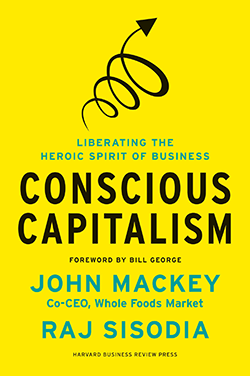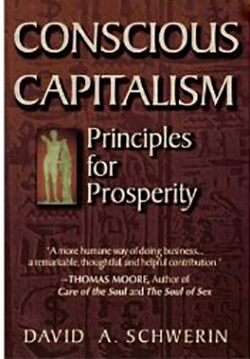Most for-profit and not-for-profit organisations are controlled by boards that have a mandate to govern their activities – but a mandate from whom to do what? The directors (or trustees) assume the ultimate responsibility for the behaviour of ‘their’ organisation, and not only for its strategic and operational performance, but also for the delivery of its corporate responsibility outcomes – including the social, cultural and ecological obligations it has to its wider stakeholder community. But how a board governs an organisation is usually determined by two critical factors – who appoints the board (and therefore sets their agenda) and how the board views its obligations to the organisational stakeholders who are not part of its ‘appointing community’.
Because most boards are appointed by the organisation’s ‘ownership community’ – the shareholders, investors or primary funders – we should not be surprised that their agenda is usually dominated by this ownership interest. And where that interest is primarily concerned with return on investment (ROI) defined in monetary terms, then we can expect that the organisation’s strategic agenda to be focussed on profitability and share price. We all understand that profits are important to enable ongoing investment in organisational capacity and to reasonably reward investors and owners, but we also know that a focus on the organisation’s bottom line has implications for the way other organisational stakeholders are treated. The organisation’s staff, suppliers and customers become means to the ends of the owners – the importance of their engagement in delivering organisational outcomes is marginalised and therefore their ‘stake’ in the organisation is devalued.
We don’t have to look too far to see the obvious impacts of this type of governance model. At a local level we see the way that market-dominant organisations treat their supplier communities, we know people we care about who are distressed and displaced by the relentless pursuit of economic outcomes, and as a community we bear the increasing costs of organisations trading off their social and ecological obligations to maximise shareholder returns. And, unfortunately, for those of us involved in the arts and cultural community, we have become used to national and local government funding being dependent on accepting a numbers definition of success: attendance levels, user satisfaction indices, revenues and the creation of surpluses – all measures which fail to reference the essential cultural purpose of these institutions.
At a global level the impacts of this focus on ownership governance are also evident in the lack of government and corporate investment in cultural, social and ecological activities that are critical to longer-term community wellbeing. And the failure to deal with world poverty, hunger and homelessness also rests with those in governance roles who have the positional power to change organisational and institutional agendas and create more equitable outcomes for all of their stakeholder communities – outcomes that represent value for each community as they would define it.
It seems common sense to me that the longer-term future of any organisation (or community) is dependent on the ongoing positive and productive engagement of all of its stakeholders. This view is shared by a small group of ‘conscious capitalists’ who are trying to influence for-profit organisations to take a more responsible approach in dealing with their total stakeholder community. The principles of conscious capitalism were first introduced by David Schwerin in his book Conscious Capitalism: Principles for Prosperity (1998), and proposed as a different way of doing business by John Mackey and Raj Sisodia in their book Conscious Capitalism: Liberating the Heroic Spirit of Business (2013). According to Mackey and Sisodia, ‘Conscious [capitalist] businesses . . . endeavour to create financial, intellectual, social, cultural, emotional, spiritual, physical and ecological wealth for all of their stakeholders . . . all the people the business touches.’
This is laudable business objective, but I think it will struggle to be realised without an aligned governance model, one which truly reflects and embraces the interests of all the stakeholders that these ‘conscious businesses’ are trying to serve. And given the capitalist model on which these businesses are based, prising organisations loose from their traditional ownership based governance structures will be no easy task. Perhaps we need a new governance model that is not defined by any traditional business model but instead grounded in the principles that define congruent organisations. These are the organisations that ‘see their future as inextricably linked to the wellbeing of their total stakeholder community and understand that their longer-term sustainability is dependent on creating equitable-shared value for that community.’ (The Congruence Framework).
To learn more about the principles of organisational congruence please refer to my book The Congruence Framework.
Books mentioned in this post include:




Leave A Comment